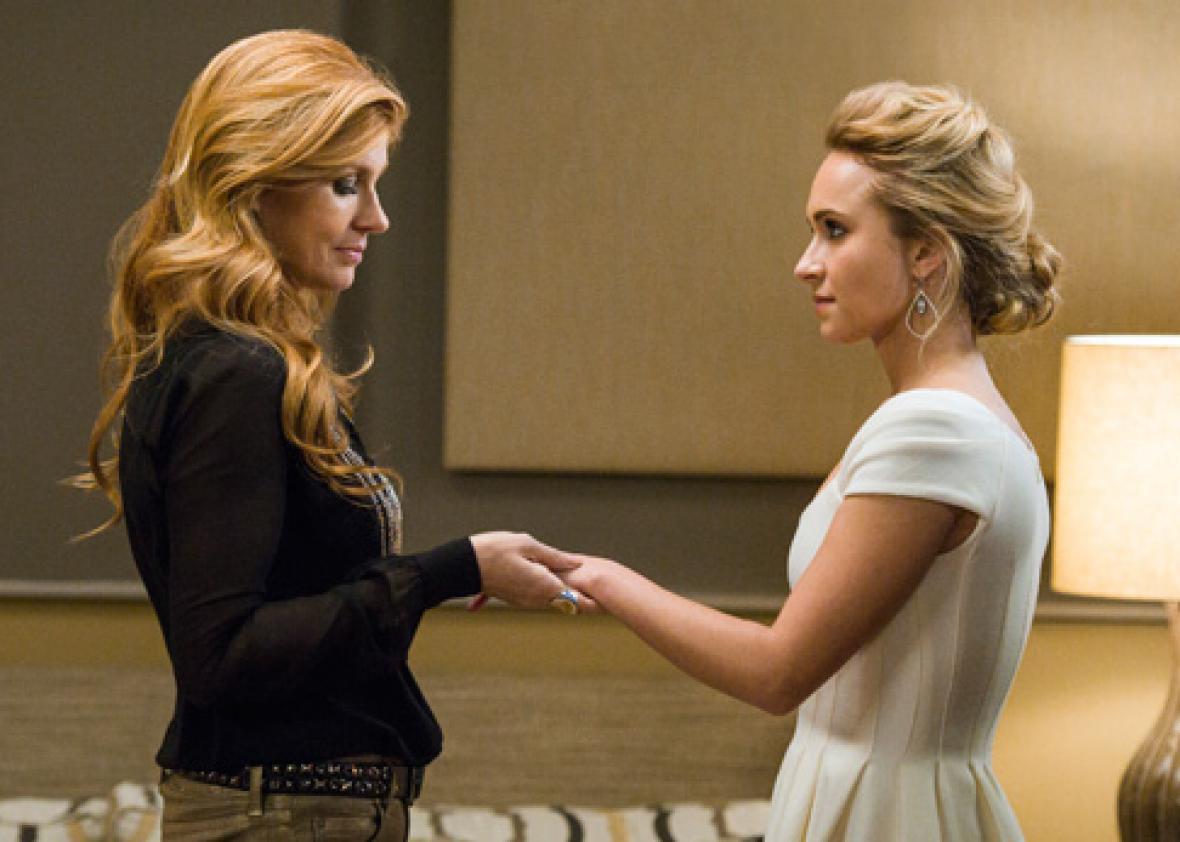On Thursday, ABC announced that it is canceling Nashville, the soap opera set in the country music business, after four seasons, all middling, whether one is measuring ratings or quality. Created by Callie Khouri, of Thelma and Louise fame, and starring Connie Britton and Hayden Panettiere as country music superstars Rayna James and Juliet Barnes, respectively, Nashville had one of the best network pilots I have ever seen. Dynamic and grounded, with a great soundtrack, it promised a delectable drama featuring well-rounded female characters trying to do creative work in a rapidly changing industry. In every episode since, the show failed to live up to its initial promise—and yet I watched all four seasons of Nashville and am sad to see it end.
In the spirit of honesty, “watching” might be too generous a description of the way I have come to consume Nashville, a show I ruthlessly fast-forward, pausing occasionally to check in on hair styles, musical numbers, love scenes, fight scenes, Rayna-Deacon scenes and Juliet Barnes. (When Teddy, Rayna’s boring and pathetic ex-husband, appeared on screen, I tried to look away from the television as I fast-forwarded. I found him that dull.) A reasonable person might wonder why I continued to watch a show I was pretty sure was never going to get better so half-heartedly. To this I have two answers.
The first is that Nashville was always showing glimmers of promise. It was not just a bad show—it was a bad show with a good show lurking inside of it. There would be a great song. There would be a scene where Rayna and Juliet came to each other’s aid, kind of against their will, but charmingly nonetheless. There would be a great performance, usually thanks to Panetierre and her indomitable, irreducible Juliet, but sometimes even thanks to her soon-to-be-ex- husband Avery (Jonathan Jackson) and his now girlfriend Layla (Aubrey Peeples). There would occasionally be an inspired storyline, as when Will Lexington (Chris Carmack) came out as gay in the extremely homophobic country music business, and had to deal, and deal …. and keep dealing with the fallout. (These flashes of excellence are why I’ll always be curious about what the show would have looked like under the guidance of naturalists Marshall Herskovitz and Ed Zwick, the creators of My So-Called Life and thirtysomething, who would have run the show next season.)
The second reason I kept watching Nashville is that one of the special qualities of soap operas and long-running network shows is that, at some point, its hooks are in you. And so long as it is not atrociously bad, there is a pleasure in showing up every week to see how some people you know are faring, however infuriating the show they appear in happens to be. This may be a small pleasure, but it is also an increasingly rare one: Thanks to bingeing, shorter episode runs, and the sheer volume of television shows, long-term relationships with mediocre TV shows are swiftly being replaced by shorter-term relationships with less mediocre TV shows. While, on the whole, this can only be a good thing, it is my right as a nostalgic human being to lament the change, simply because it is a change.
Nashville was beset by poor plotting, hamstrung love triangles, bland supporting characters whose names you never really had to learn and many other problems, including that it never figured out how to give its purported star, Britton’s Rayna, a really good storyline. But still, I’ll miss seeing those characters every week, as they zipped by.
